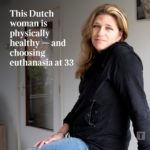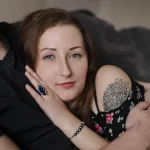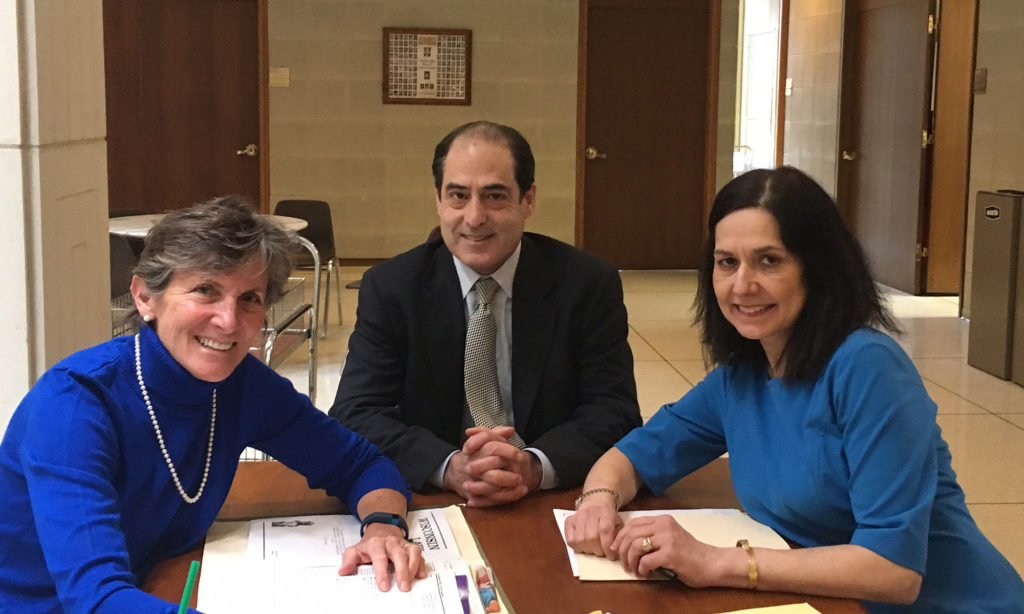On April 25, 2024 an otherwise healthy Dutch woman will celebrate her 34th birthday by being euthanised. Jolanda Fun of North Brabant, the Netherlands, has long suffered from mental-health problems: eating disorders, recurrent depression, autism and learning disabilites. She has tried a multiplicty of therapies, none of which has worked. As a consequence, she has never been able to hold down a job and never known a minute of inner peace. While she has made preparations for her death by inviting funeral invites with the message: "Born from love; let go in love. After a hard-fought life, she chose the peace she so longed for", she readily admits that an earlier intervention in her life might have changed her trajectory. As it is, she reiterates her ultimate desire today: "I want to step out of life.'
of North Brabant, the Netherlands, has long suffered from mental-health problems: eating disorders, recurrent depression, autism and learning disabilites. She has tried a multiplicty of therapies, none of which has worked. As a consequence, she has never been able to hold down a job and never known a minute of inner peace. While she has made preparations for her death by inviting funeral invites with the message: "Born from love; let go in love. After a hard-fought life, she chose the peace she so longed for", she readily admits that an earlier intervention in her life might have changed her trajectory. As it is, she reiterates her ultimate desire today: "I want to step out of life.'
Unlike the case of Brittnay Maynard who publicly announced the date of her death, Nov 1, 2014 using Medical Aid in Dying legislation in Oregon after being diagnosed with a glioblastoma, leaving her less than six months to live, the case of Jolanda Fun has rasied the question whether the Assisted Dying movement, at least in the Netherlands, is going too far. In the United States, in each of the 11 US jurisdictions where MAID is available, the patient must be suffering from a terminal disease, indicating a life prognosis of less than 6 months. Furthermore, the patient must be able to self adminster the medicine, obviating the possibility of euthanasia.
In the Netherlands, however, intolerable, incurable suffering is a valid reason for accessing medical euthanasia if there is no "prospect of improvement after exhausting all reasonable treatments". And it is in fact a rapidly growing, albeit minimal percentage, component of the Netherlands' Assisted Suicide/Euthanaisa (ASE) populaiton. As an example, in 2010, only 2 people sought euthanaisa on the grounds of mental health. That increased to 68 in 2019 and 138 in 2022; there were a total of 8,720 cases of ASE in 2022 out of a total of about 180,000 mortalities.
Shockingly, Jolanda's death scheduled for this week is paralleled by the scheduled euthanaisa of a 28-year old fellow Dutch woman,

Zoraya ter Beek, who has announced her decision to be euthanised in May. Zoraya has suffered from crippling depression and autism for most of her adult life and has exhausted all available therapies and treatments. Appearances can be deceiving, since Zoraya, a visibly attractive young woman in love with her 40 year-old IT boyfriend and her two cats, would seem to have an entire future ahead of her. But she admits to haveing lost hope for recovery after her psychiatrist adivsed her that "It's never gonna get any better". She admits "I don't want to die, but I can't live."
Whether the Netherlands has indeed gone too far or has merely arrived at a more advanced understanding of personal autonomy and agency is debatable. In cases where therapies and medicine have failed and there is no prospetive of improvement, living with the crushing pain of crippling depression is indeed as debilitating as any phsyical ailment. And there is the obvious reality that people such as Jolanda and Zoraya, in the absence of a health system which at least provides a peaceful and bloodless end, might have recourse to far more violent solutions using guns, as is the case for some 30,000 Americans who every year commit suicide using guns (on top of another 20,000 who use other methods).
This, however, is a debate which the ASE movement needs to have, as we are swimming here in very murky waters.


